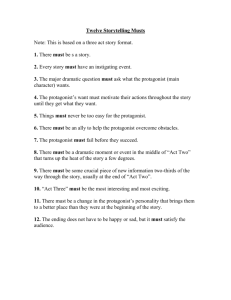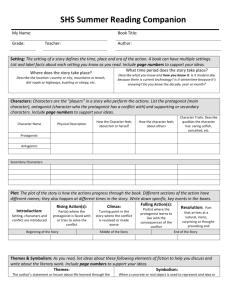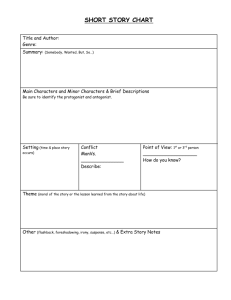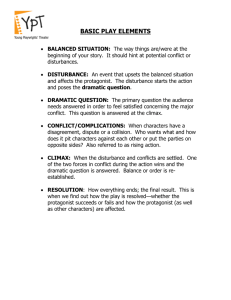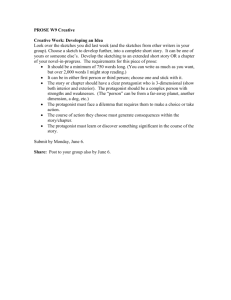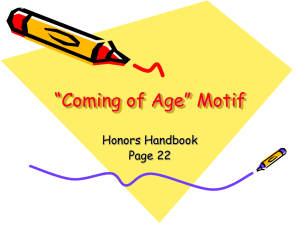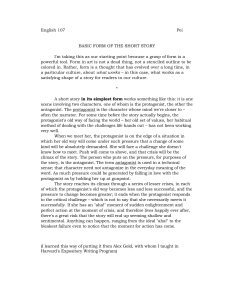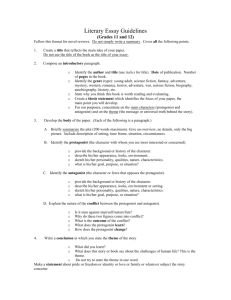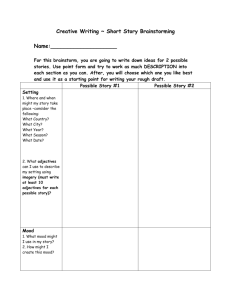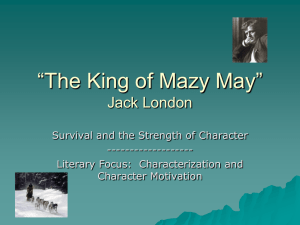Theme and story considerations:
advertisement
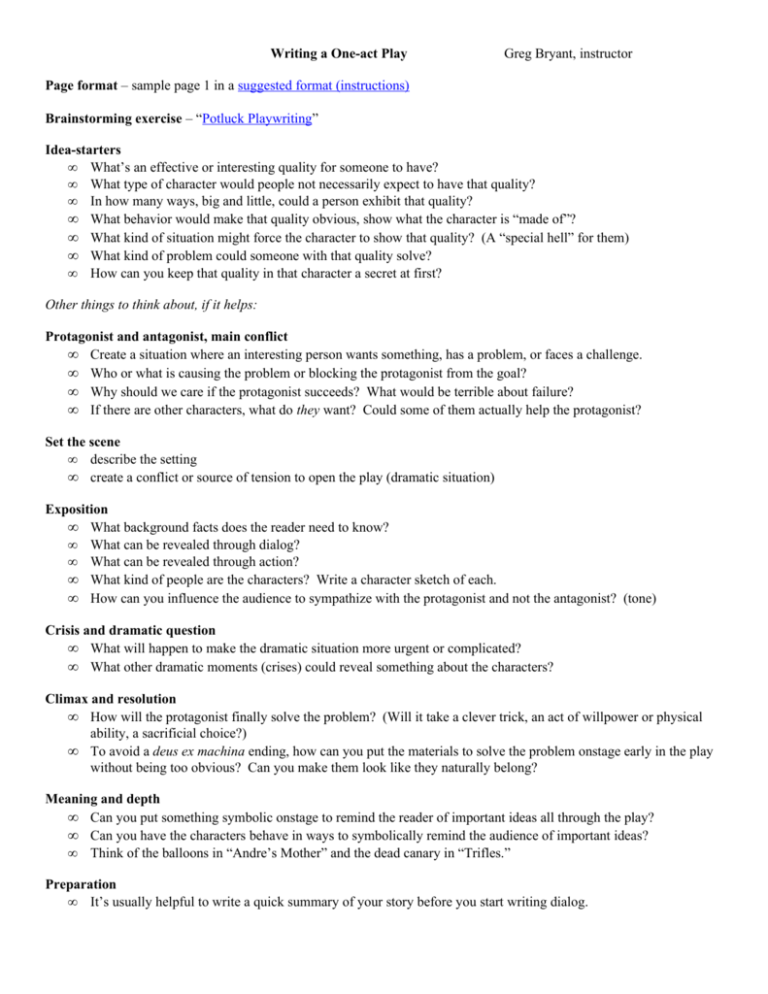
Writing a One-act Play Greg Bryant, instructor Page format – sample page 1 in a suggested format (instructions) Brainstorming exercise – “Potluck Playwriting” Idea-starters • What’s an effective or interesting quality for someone to have? • What type of character would people not necessarily expect to have that quality? • In how many ways, big and little, could a person exhibit that quality? • What behavior would make that quality obvious, show what the character is “made of”? • What kind of situation might force the character to show that quality? (A “special hell” for them) • What kind of problem could someone with that quality solve? • How can you keep that quality in that character a secret at first? Other things to think about, if it helps: Protagonist and antagonist, main conflict • Create a situation where an interesting person wants something, has a problem, or faces a challenge. • Who or what is causing the problem or blocking the protagonist from the goal? • Why should we care if the protagonist succeeds? What would be terrible about failure? • If there are other characters, what do they want? Could some of them actually help the protagonist? Set the scene • describe the setting • create a conflict or source of tension to open the play (dramatic situation) Exposition • What background facts does the reader need to know? • What can be revealed through dialog? • What can be revealed through action? • What kind of people are the characters? Write a character sketch of each. • How can you influence the audience to sympathize with the protagonist and not the antagonist? (tone) Crisis and dramatic question • What will happen to make the dramatic situation more urgent or complicated? • What other dramatic moments (crises) could reveal something about the characters? Climax and resolution • How will the protagonist finally solve the problem? (Will it take a clever trick, an act of willpower or physical ability, a sacrificial choice?) • To avoid a deus ex machina ending, how can you put the materials to solve the problem onstage early in the play without being too obvious? Can you make them look like they naturally belong? Meaning and depth • Can you put something symbolic onstage to remind the reader of important ideas all through the play? • Can you have the characters behave in ways to symbolically remind the audience of important ideas? • Think of the balloons in “Andre’s Mother” and the dead canary in “Trifles.” Preparation • It’s usually helpful to write a quick summary of your story before you start writing dialog.
